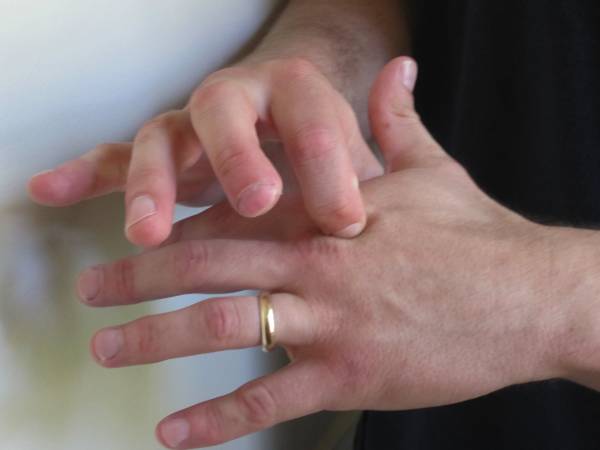In a previous piece, Preventing Common BJJ and CrossFit Injuries, along with my friend Sam Kressin of Embodied Strength, I discussed the most common injuries in these two sports – cervical strain and low back injuries.
Now, we are going to focus just on cervical strain and give you some simple ways you can help yourself heal.
In a previous piece, Preventing Common BJJ and CrossFit Injuries, along with my friend Sam Kressin of Embodied Strength, I discussed the most common injuries in these two sports – cervical strain and low back injuries.
Now, we are going to focus just on cervical strain and give you some simple ways you can help yourself heal.
Cervical Strain or Sprain
In the case of a cervical strain/sprain, there are a number of things that can be done to facilitate healing. As a licensed acupuncturist I have been trained in numerous treatments and protocols to help this condition, but I wanted to pick techniques that wouldn’t require any special knowledge or training to do. These three therapeutic techniques are intended to be used after the acute-phase of the injury, which is the first four days after the incident.
Remember that after a neck strain/sprain, the muscles in the neck will often become tight, guarding the affected area and limiting motion and mobility. Anything that can be done to safely alleviate muscle tension, improve range of motion, and promote blood circulation to the affected area, is going to help the healing process.
A. Manual Cervical Traction
Applying gentle traction to the neck can often ease and elongate tight muscles, allowing pinched nerves or compressed blood vessels to be released.
Tight muscles will constrict and compress everything around them. The idea behind using traction is to create more space and alleviate pressure by improving the blood supply to the neck muscles, tendons, and ligaments of the affected area.
One of the simplest ways to do this is to:
- Lie down on your back and place a folded (lengthwise) hand towel under the occiput of your head. This is the rear part of your skull that rounds out away from your neck.
- Have a friend gently pull the towel straight towards them. Try to get them to hold the position for at least 3 minutes.
- Repeat the exercise 2-3 times per-day or until you feel some relief. I have seen excellent results in my own clinic with as little as a few minutes a day.
B. Hydrotherapy
Soaking in Epsom Salt can be very helpful for the release of muscle aches and pain. It is informative to remember the actual name of Epsom Salt is Magnesium Sulfate. Among magnesium’s many functions is it will reduce the rate of calcium binding after a muscle contracts as it competes for the same binding sites as calcium, which contracts a muscle.
Something as simple as an Epsom Salt bath can be of great benefit in relaxing a tight muscle.
It is easily done by
- Adding 2 cups of Epsom Salt to a warm bath full of water.
- Soak your neck in the bath for 15 – 20 minutes, allowing the Magnesium to be absorbed through your skin.
Continue to page two for a highly effective accupressure point technique.
C. Acupressure Point for Stiff Neck
Luo Zhen is the name of an acupuncture/acupressure point used specifically for a stiff neck. The point is found on the back of the hand in between the two bones in the depression just past the knuckles of the pointer and middle finger.
How to use Luo Zhen to treat a stiff neck:
- Massage the point on the opposite side of the body from the neck pain. If the right side of your neck hurts, massage the point on your left hand. You will need to massage this point by pressing into it with the tip of your finger, and make sure to use enough pressure to feel slight tenderness at the point.
- Maintain that pressure while making very small circles with your pressing finger.
- At the same time as you are stimulating the acupressure point, exercise the neck by rotating your head side to side. You should slowly begin to notice a slight increase in your range of motion while experiencing a decrease in pain.
Once, I treated an elderly woman with severe neck pain and limited range of motion from sleeping in a bad position.

I tried using the acupuncture point Luo Zhen for several minutes while she exercised her neck. To my surprise, there was no result or improvement at all.
Rather than give up, I decided to try again. This time I worked on the point for more than ten minutes and then rechecked. She had a very slight increase in her range of motion. After forty minutes of treatment we had the full mobility of her neck restored and no pain.
Patience and Persistence Are Important When Treating Neck Pain
I’m not telling this story to say that everyone is going to have these types of miraculous results with this or any of the other techniques. What I want to point out is sometimes it will take some patience and the ability to acknowledge even a small amount of progress in order to fully restore one’s health. Had I just given up after my first attempt, the treatment may not of had any benefit at all.
Check out these articles for more on neck pain relief and prevention:
- 3 Quick and Simple Ways to Relieve Neck Pain or Stiffness
- 9 More Articles to Help an Injured, Stiff, or Painful Neck
- Use Your Head to Save Your Neck: 4 Ways You’re Causing Neck Injury
- Explore Breaking Muscle – Go to the Home Page






